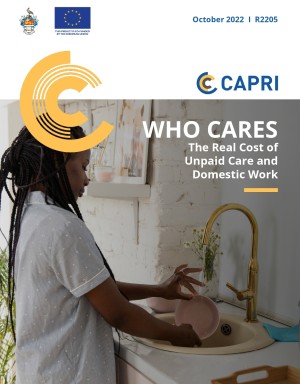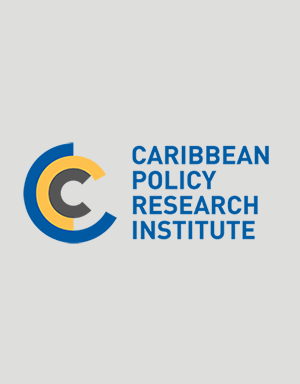Employer-provided care support for workers with care obligations could be one solution to Jamaica’s productivity and labour market challenges. In Jamaica, however, there is no provision of public services or infrastructure to support unpaid care and domestic work obligations. Internationally, the data supports the proposition that both employees and employers’ benefit when employers provide support…
Reports

- Read Report1.78 MB

The Open Budget Survey (OBS) is the world’s only independent, comparative, and objective research instrument for this purpose; this instrument was used for this assessment. Of the 120 countries assessed by the OBS in 2021, the vast majority (94), Jamaica included, failed to reach the minimum threshold for adequate budget transparency, public participation, and oversight. This report assesses how…
- Read Report10.45 MB

Unpaid care and domestic work is an important aspect of economic activity and the well-being of individuals. There are negative implications of unpaid care and domestic work for well-being, labour force participation rates, labour exclusion, gender equality, and women’s empowerment. However, the economic scope - its monetary value, and how it intersects with other economic activity - of unpaid care…
- Read Report22.64 MB
- Read Brief872.16 KB

Jamaica has the second-highest rate of femicide (intentional homicide of females) and one of the world's highest rates of intimate partner violence. While the causes of GBV are complex, cultural attitudes have been found to contribute significantly to the scale and nature of violence against women and girls, and the reactions and responses to it. There is a proven link between media consumption and…
- Read Report12.43 MB

Education is arguably the most important factor in attaining national economic development. In any country, higher education is both a fundamental requirement in achieving a highly skilled labour force as well as an aspiration of many young people for their own personal development and social mobility. No country can achieve sustainable development without substantial investment in human capital.…
- Read Report7.23 MB

Jamaica began its COVID-19 vaccination programme in March 2021, but Jamaica’s vaccination rate is the second lowest in the Caribbean region, and despite an adequate supply of vaccines, demand remains low. Jamaica is almost certain to fail to reach the desired goal of vaccinating 65 percent of the population by March 31, 2022. This report aims to explore why the uptake of vaccines in Jamaica is so…
- Read Report5.67 MB
- Read Brief281.82 KB

Across the world, as in Jamaica, the pandemic challenged governments’ capacity to manage resources effectively and equitably. With fiscal resources moving around on such a massive scale, civil society partners across 120 countries, including the Caribbean Policy Research Institute (CAPRI) in Jamaica, worked with the International Budget Partnership (IBP) to take a closer look at how governments…
- Read Report4.37 MB

Financial inclusion is a key element of poverty reduction and inclusive development. In seeking to improve citizens’ well-being and increase economic growth, financial inclusion enables individuals and businesses to build resilience and capitalize on economic opportunities. Notwithstanding these benefits, there are barriers to expanding access to and usage of the four functionalities that…
- Read Report12.52 MB
- Read Brief595.73 KB

Education plays a critical role in national development, at individual and societal levels. The disruption wrought by the pandemic ought to be reviewed, analysed, and understood so as to provide evidence-informed policy solutions to the resulting complex, critical problems that Jamaica faces. This report provides an evidence- informed account of what has happened to education, and to children, in…
- Read Report10 MB
- Read Brief422.58 KB

COVID-19 pandemic’s principal impact on Jamaica has been hundreds of deaths, tens of thousands of people infected, and a disruption of livelihoods and the economy that has brought the greatest economic decline since the country started measuring it. Fifty-seven percent of Jamaican households saw a reduction in income between the onset of the coronavirus in March and September 2020, and some 40,000…
- Read Report4.62 MB
- Read Brief308.18 KB

Before March 2020, the global tourism industry was in a pre-pandemic boom with continued growth projected for the Caribbean region. Categorised as one of the largest and fastest-growing economic sectors in the world, the tourist industry is acknowledged as a powerful catalyst for Social-economic development. In 2019, the sector contributed, directly and indirectly, a third of the region’s GDP.…
- Read Report7 MB
- Read Brief504.15 KB

Jamaica’s children are in need of more and more available, specialized, and consistent mental health services. Most mental disorders that afflict adults have their genesis in childhood and adolescence. The first five years of life are the most critical with regard to brain development, including the development of emotional control and habitual ways of responding. Directing investments and efforts…
- Read Report4.57 MB
- Read Brief246 KB

